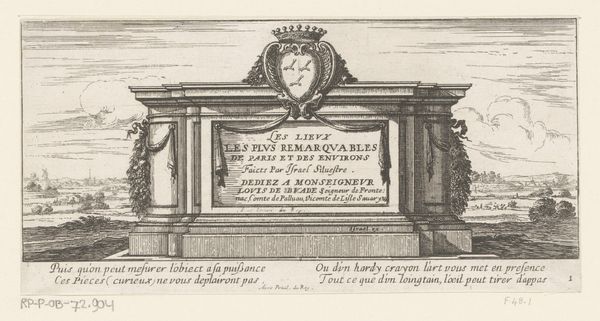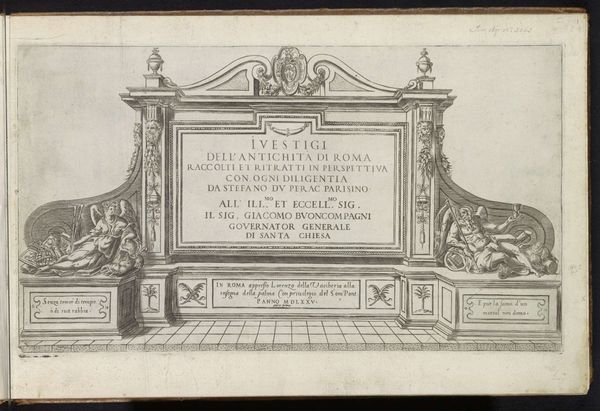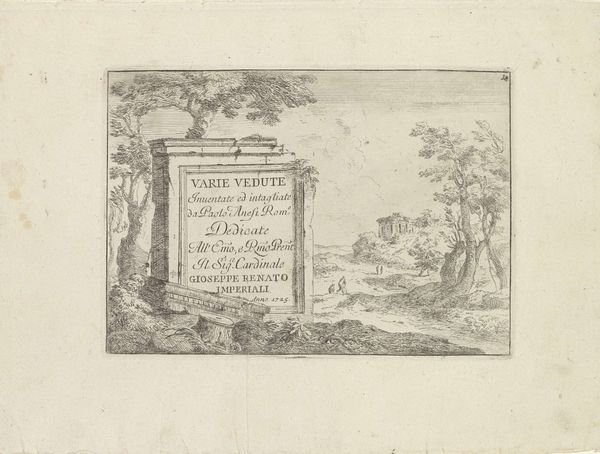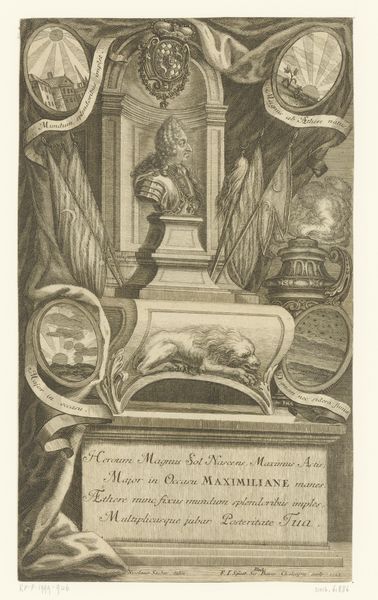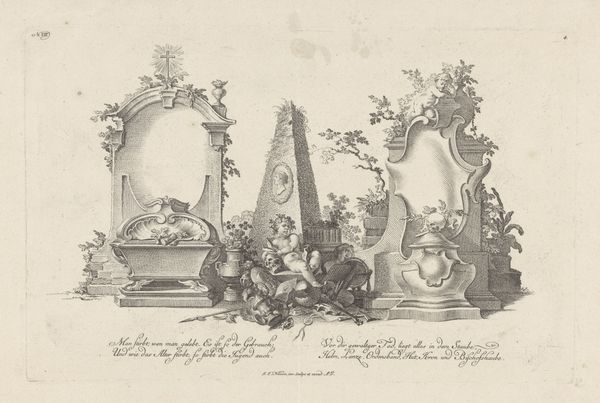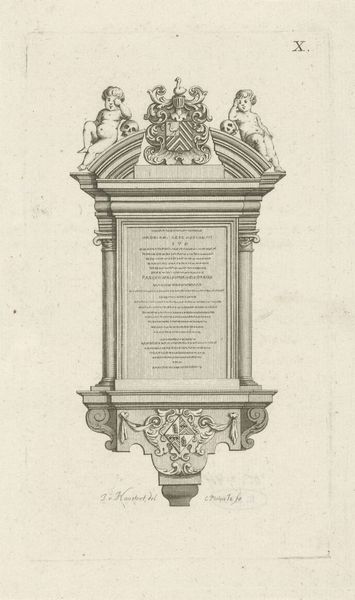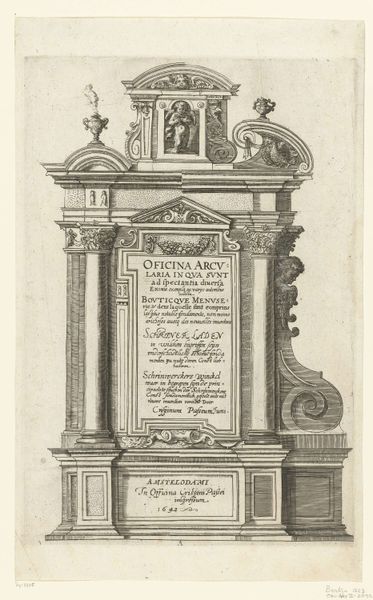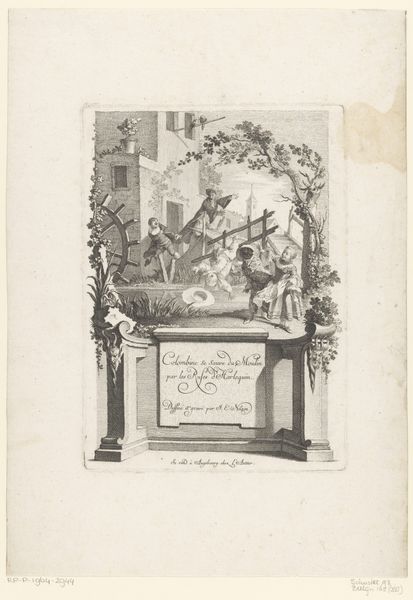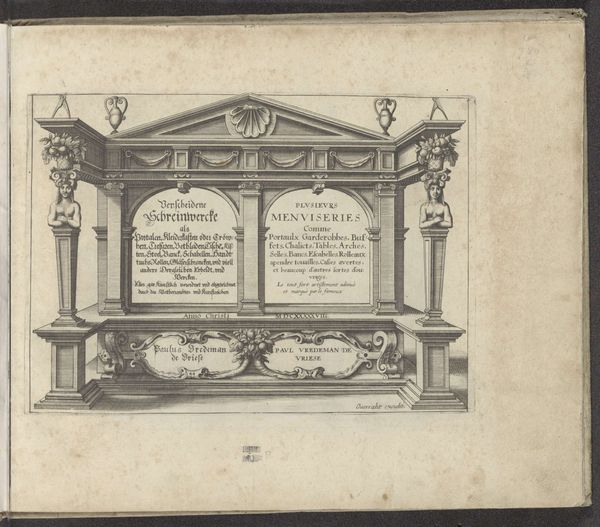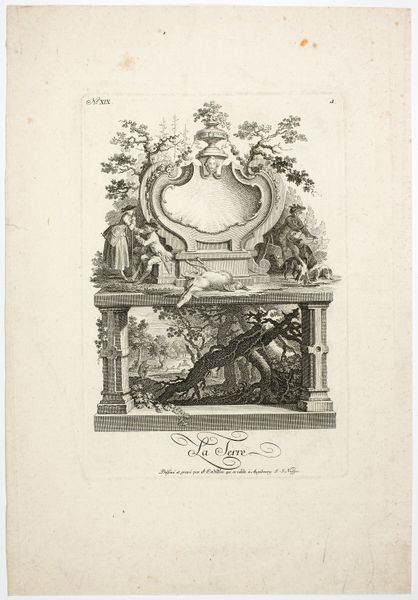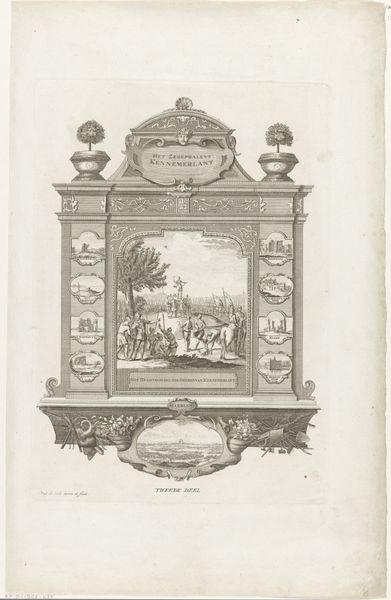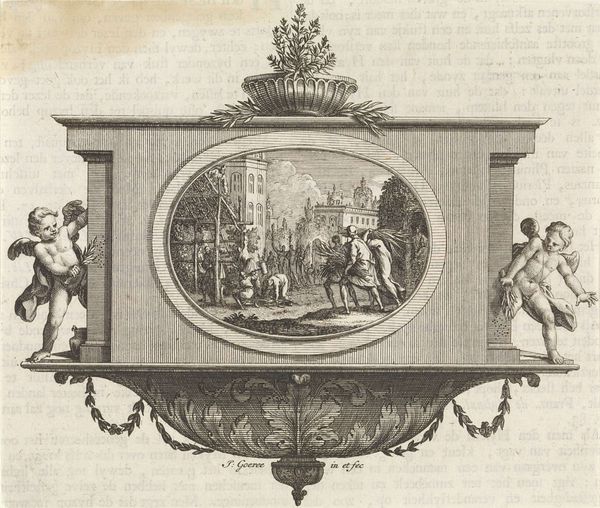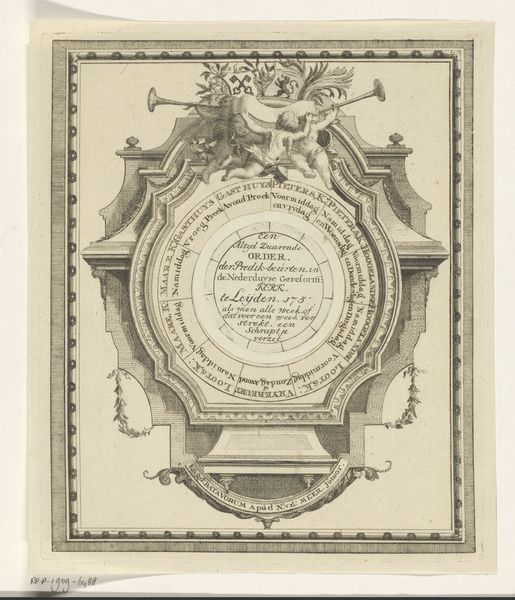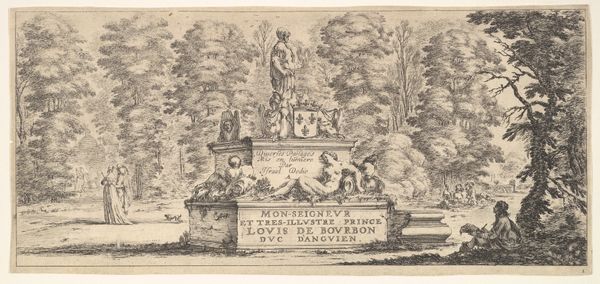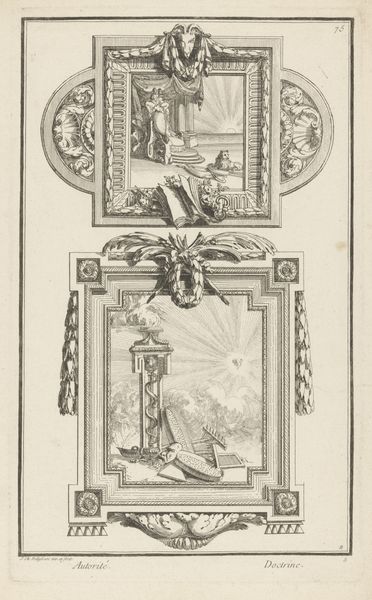
print, engraving
#
baroque
# print
#
old engraving style
#
landscape
#
history-painting
#
engraving
Dimensions: height 244 mm, width 351 mm
Copyright: Rijks Museum: Open Domain
Giuliano Giampiccoli etched this landscape with a tomb monument in the 18th century. At its heart, the tomb serves as a powerful memento mori, a reminder of mortality, that echoes through time. We see this symbolism reflected in the vanitas paintings of the Dutch Golden Age, where skulls, decaying fruit, and extinguished candles urge viewers to reflect on the transience of life. Yet, even in ancient Roman art, funerary monuments and sarcophagi were adorned with similar motifs, illustrating the enduring human preoccupation with death and remembrance. The presence of a tomb in a landscape evokes a complex array of emotions, from sorrow and grief to acceptance and even serenity. It highlights our collective consciousness of death, that remains with us and is continually reshaped by the cultures that come after. In viewing Giampiccoli's etching, we are reminded of the continuous thread that connects us to past generations, where the echoes of mortality resonate within us all.
Comments
No comments
Be the first to comment and join the conversation on the ultimate creative platform.
